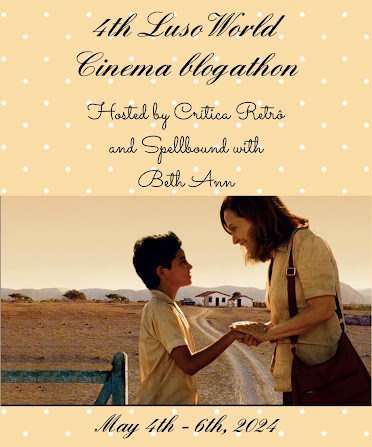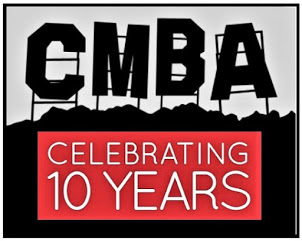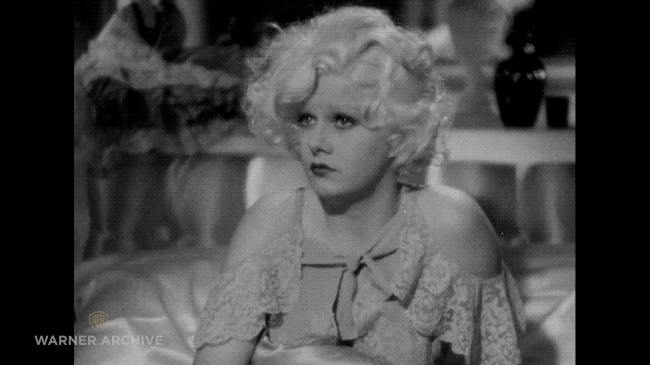A person could go on all day about the delightful 1939 comedy, Ninotchka. What’s not to love about a film with Cedric Gibbons art direction, Adrian gowns, Ernst Lubitsch’s skilled directing (a.k.a. “The Lubitsch Touch“), and a top-notch cast?
What we admire most is the script.
The screenplay was a collaborative effort by Charles Brackett, Walter Reisch and a man who would become one of Hollywood’s most acclaimed directors, Billy Wilder.
To us, the script is like sneaking into your grandmother’s freezer and discovering a cache of baked goods. There are plenty of funny lines, endearing characters, and thoughtful observations on geopolitics.
Ninotchka is set in pre-World War II Paris, where three Russian envoys have arrived with orders to sell Russian jewels on behalf of the Soviet Union. Unfortunately, prices are not ideal because the market has become flooded with such jewels.
There’s a bigger glitch: A Russian Countess in exile (Ina Claire), learns the Soviets have arrived with intentions to sell her family’s confiscated heirlooms.
Moscow then dispatches an Envoy Extraordinary named Ninotcha (Greta Garbo) to Paris to sort out this mess.
Wilder & Co. have created such intriguing characters that even if this film had no plot, it would still be fascinating. Characters reveal, in the first exchange of dialogue, their agenda and their eventual outcome.
For example, the Countess’ courtesan (Melvyn Douglas), is a suave fellow who appears with this introduction: “Remember that platinum watch with the diamond numbers? You’ll be in a position to give it to me now.”
Garbo, at the start of the film, is a dour, industrial-strength communist. She doesn’t suffer fools, and she despises frivolity.
Her adversary, the Countess, is a refined, cultured woman who is equally tough. She despises everything Garbo represents. Our sympathies throughout the movie lie with Garbo, but Claire is not going down without a fight. When the two women finally meet, Claire sharply reminds Garbo of everything the Bolsheviks have taken from her.
Whether as a screenwriter or director, Wilder is as funny as he is cynical. He’s an unflinching observer of human nature. This script incorporates Wilder’s trademark shrewdness, but we also find something unexpected.
Ninotchka, at heart, is overwhelmingly life-affirming.
Garbo’s character undergoes an incredible transformation in this film. When she first arrives in Paris, she orders her fellow comrades, “Don’t make an issue of my womanhood. We’re here to work.”
When she sees a ridiculous hat in a shop window, she almost can’t express enough displeasure. (“A civilization cannot survive with such hats.”) However, each time she passes the window, her contempt softens. Then, when she opens a carefully-locked drawer in her hotel room and pulls out said hat, we realize she is shedding Soviet rhetoric for a more human existence.
Douglas is drawn to Garbo in spite of (or because of?) her humourless demeanour. He implores her to smile and to laugh at “the whole spectacle” of life. “Thinking about death is so glum,” he says.
After Garbo’s internal human-ness awakens, she gives a poignant speech which must have been acutely felt by audiences in 1939, when the world was on the verge of global war. Her speech is almost a direct plea to world leaders.
“Comrades, people of the world,” she says, “the revolution is on the march. I know, bombs will fall, civilizations will crumble, but not yet. Please – wait. What’s the hurry? Give us our moment. Let us be happy.”
Ninotchka received four Academy Award nominations, including Best Adapted Screenplay. We know you’ll enjoy this clever film co-authored by the great Billy Wilder.
Ninotchka: starring Greta Garbo, Melvyn Douglas, Ina Claire. Written by Charles Brackett, Billy Wilder, Walter Reisch. Directed by Ernst Lubitsch. Metro-Goldwyn-Mayer, BW, 1939, 110 mins.
This post is part of the BILLY WILDER Blogathon co-hosted by Outspoken and Freckled and Once Upon a Screen. Click HERE to view all the fab posts in this blogathon.













Reblogged this on Rogues & Vagabonds and commented:
One of my favourite Hollywood films.
LikeLike
I LOVED this film. I fell in love with Garbo and finally understood the fuss over her.
LikeLike
This was my 1st Garbo film, too, and I had the same reaction as you. She has real charisma, no?
LikeLike
Every so often I’ll repeat her favourite line to my daughter and she always laughs: “The last mass trials were a great success. There are going to be fewer but better Russians.” I first showed her “Ninotchka” while she was in high school and working on a history project on Russia. She fell off the couch laughing and I don’t believe she ever got up.
LikeLiked by 1 person
Ha ha! That is a GREAT line. How could she say it without bursting out laughing?
LikeLike
Definitely need to add this one to my list!
LikeLike
You do need to add it to your list. I think you, in particular, would like it.
LikeLiked by 1 person
It’s my favorite Greta Garbo film and, yes, the script is marvelous. But I also love the supporting performances. They make the movie for me.
LikeLike
The supporting cast is terrific, especially the three comrades. There’s so much to say and admire about this film, isn’t there?
LikeLike
I LOVE THIS MOVIE and you’ve done it justice. It is life-affirming although I never looked at it that way until now. Terrific tribute to an all-time fave, Ruth!
Aurora
LikeLike
Thanks, Aurora. This is a film a person could watch over and over, and never get tired of it. Thanks for hosting this terrific blogathon!
LikeLike
Fantastic post, I need to re-watch this film asap!
LikeLike
Thanks! It’s a great film, isn’t it? A person could write an essay on just the acting, or just the directing, or just the wardrobe, etc. There’s so much to say about it.
LikeLike
You know what I love most about this film (not to take away from the script, Gibbons’ art direction or Garbo)? THE HAT!
Who knew a simple accessory could hold such meaning?!
Great review Ruth!
LikeLike
I know what you mean re: hat. I wrote an entire post about it a couple of years ago. It’s a marvelous hat & an even better symbol of personal freedom. I could never pull off such a look, but it looks fab on Garbo.
LikeLiked by 1 person
Another fantastic post, Ruth! It’s a terrifically Wilder film all the way. Thanks for joining our blogathon!
LikeLike
Thanks for hosting, Kellee! Billy Wilder definitely deserves his own blogathon.
LikeLike
Superb piece Ruth:)
This was my first Garbo movie:)
I became a fan after that.
“Give us our moment. Let us be happy.” Still so relevant,no?:)
LikeLike
You’re right – “Give us our moment” is still very relevant. Good point!
LikeLiked by 1 person
Great post and excellent points! Forgot about the hat!! LOL. I’ll admit I’m glad I saw this after Anna Karenina, Love, and Camille. I got to see she had a sense of humor after all. Guess everyone else back then thought the same thing, she needs to laugh! I need to see it again now…
LikeLike
Garbo is utterly charming in this film, isn’t she? It was an inspired casting choice.
LikeLiked by 1 person
Great blog post! The scene where the two of them are talking by the street crossing is one of my all time favourite meetings in cinema. Going to have to watch it again now!
LikeLike
It is a great meeting, especially when you consider if the Parisian traffic were not so heavy, they wouldn’t have met that night at all. That scene never gets old, does it?
LikeLike
I watched Ninotchka long before I became a Billy Wilder fan. I wasn’t surprised, however, to find out he worked as a screenwriter in this movie. It’s witty, well-paced and cynical at times. It’s pure early Wilder. Ninotchka starts with a sentence on ‘sirens’: the ladies versus the sound thing, I think this beginning sentence IS pure Wilder.
Thanks for the kind comment!
Kisses!
Le
LikeLike
Yes, I think you’re right about that sentence being pure Wilder. And there’s almost nothing better than that.
LikeLike
Sounds like another movie to put on my list. I have not seen a Greta Garbo film. I enjoyed learning about Billy Wilder and will look for his movies. The hat incident sounds so touching, and I like how you described it as life-affirming. I look forward to seeing this one. Thank you, Ruth!
LikeLike
Yes, please see this one if you can, Shari.
LikeLike
Oops! Premature “Send”. This is a very funny movie, but also quite touching. It helps a person see why there was all the fuss about Greta Garbo.
LikeLiked by 1 person
Oh, thank you for reminding me how incredible this film is. I’m going to purchase a copy to have on hand. A current personal project is to turn my sci-fi, video game loving husband into a classic film fan. I’m starting with Bogart (so far, so good), , but I know he’ll love Ninotchka because of the geopolitical angle, the writing, and the subtle sexiness.
Ah! I can hear Garbo’s beautiful delivery of her “Let us have our moment line” in my mind’s ear right now. Thanks for a glorious post!
LikeLike
Good on you! I agree – Bogart is a great place to start. I have a similar husband and, although nothing will replace modern sci-fi in his heart, he’s really taken to some of the classics. (One day I came home and he was ENGROSSED in the silent classic “The Big Parade”!)
LikeLike